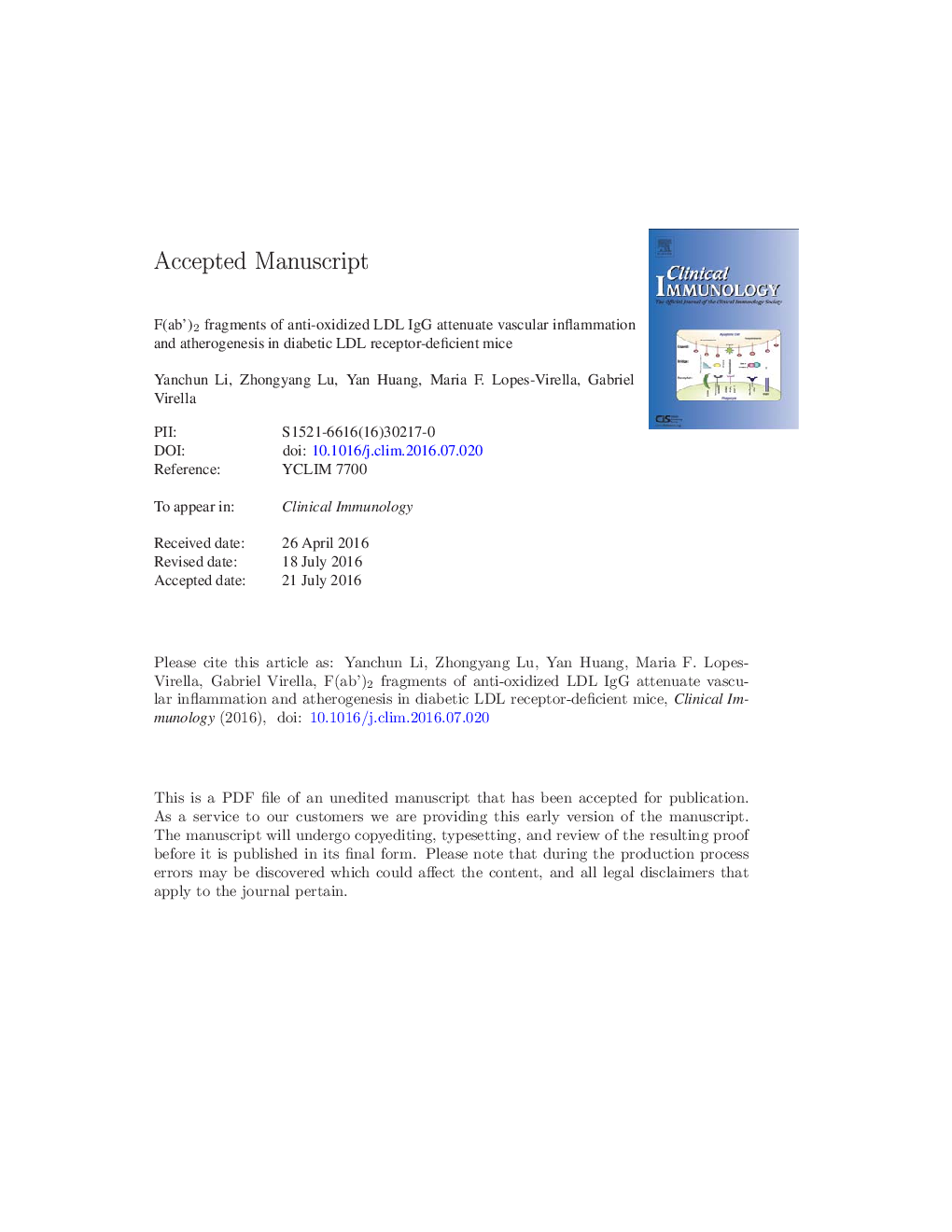| Article ID | Journal | Published Year | Pages | File Type |
|---|---|---|---|---|
| 5654963 | Clinical Immunology | 2016 | 29 Pages |
Abstract
Considerable evidence is available supporting the atherogenic role of immune complexes (IC) formed by modified forms of LDL and their corresponding antibodies in humans and other species. In this study, we assessed the effect of IgG F(abâ²)2 fragments of murine anti-mouse oxLDL, which binds oxLDL forming IC that cannot interact with Fcγ receptors, on the development of atherosclerosis in diabetic LDL receptor-deficient (LDLR â/â) mice. Immunohistochemical study showed that treatment with the F(abâ²)2 fragments for 8 weeks significantly reduced the content of macrophages and interleukin 6 expression in atherosclerotic lesions. Furthermore, histological study showed that treatment with the same F(abâ²)2 fragments significantly reduced atherosclerotic lesions in diabetic LDLR â/â mice. Taken together, this study demonstrated for the first time that F(abâ²)2 fragments of anti-oxLDL IgG inhibited vascular inflammation and atherogenesis in diabetic LDLR â/â mice and uncovered a possible new avenue for therapy in patients at high risk to progress to cardiovascular complications.
Related Topics
Life Sciences
Immunology and Microbiology
Immunology
Authors
Yanchun Li, Zhongyang Lu, Yan Huang, Maria F. Lopes-Virella, Gabriel Virella,
